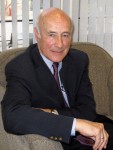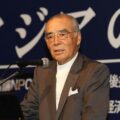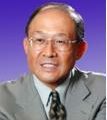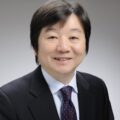(ASIA PIVOT) Our Pacific Predicament

Joseph S. Nye, Jr.
Excerpts from the Original Essay:
In addition to China’s rise, the decline of Japan has caused the balance of power between Japan and China to shift markedly over recent decades. Some analysts find it distracting to describe Japan’s situation as “decline.” As a leading expert, Gerald L. Curtis of Columbia University, correctly pointed out on a Council on Foreign Relations blog last year, “if you think about living standards and the quality of the air you breathe, the water you drink and the food you eat, the health care and other social services you receive, and the number of years you can expect to live, the answer is obvious: better to live in ‘declining’ Japan than in rising China.” True enough, but in terms of the balance of power, the change is clear.
Japan’s economy has suffered two decades of slow growth because of poor policy decisions after a speculative bubble burst in the early 1990s. In 2010, China’s economy passed Japan’s in total size as measured in dollars (though it remains far behind Japan in per capita terms). In 1988, eight of the top ten companies in the world by market capitalization were Japanese; today none are Japanese.
It is difficult to remember that a little over two decades ago, many Americans feared being overtaken by Japan after Japanese per capita income surpassed that of the United States. A 1989 Newsweek article put it succinctly: “In boardrooms and government bureaus around the world, the uneasy question is whether Japan is about to become a superpower, supplanting America as the colossus of the Pacific and perhaps even the world’s No. 1 nation.” Books predicted a Japanese-led Pacific bloc that would exclude the United States, and even an eventual war between Japan and the United States. Futurologist Herman Kahn forecast that Japan would become a nuclear superpower, and that the transition in Japan’s role would be like “the change brought about in European and world affairs in the 1870s by the rise of Prussia.” These views extrapolated an impressive Japanese record, but today they serve as a useful reminder about the danger of linear projections based on rapidly rising power resources.
On the eve of World War II, Japan accounted for 5 percent of world industrial production. From 1950 to 1974, Japan averaged a remarkable 10 percent annual growth, and by the 1980s it had become the world second largest national economy, with 15 percent of world product. It became the world’s largest creditor and largest donor of foreign aid. Its technology was roughly as sophisticated as that of the United States and even slightly more so in some areas of manufacturing. Japan armed only lightly (restricting military expenditures to about 1 percent of GNP) and focused successfully on managed economic growth.
Japan has an impressive historical record of reinventing itself twice. A century and a half ago, Japan became the first non-Western country to successfully adapt to modern globalization. After centuries of isolation, Japan’s Meiji restoration selectively borrowed from the rest of the world, and within half a century the country became strong enough to defeat a European great power in the Russo-Japanese War. After 1945, it rose from the ashes of World War II.
Can it reinvent itself again? In 2000, a Prime Minister’s commission on Japan’s goals in the 21st century called for a new reinvention, and some thought the 2011 earthquake and tsunami might provide a shock to jump start the process. But little has happened. Given the slowing of economic growth, the weakness of the political process, the aging of the population and the resistance to immigration, change will not be easy. Japan faces severe demographic problems, with its population projected to shrink to one hundred million by 2050. But Japan retains a high standard of living, a highly skilled labor force, a stable society, and areas of technological leadership and manufacturing skills. Despite its weak recent performance, Japan retains impressive power resources. It possesses the world’s third largest national economy and has the best equipped conventional military forces among Asian countries. Moreover, its culture (both traditional and popular), its overseas development assistance and its support of international institutions provide ample resources for soft or attractive power. In December 2012, newly elected Prime Minister Shinzo Abe campaigned on a promise to revive Japanese economic growth.
Could a revived Japan, a decade or two hence, become a global challenger economically or militarily, as was predicted two decades ago? It seems unlikely. Roughly the size of California, Japan will never have the geographical or population scale of China or the United States. Its success in modernization and democracy and its popular culture provide Japan with soft power, but ethnocentric attitudes and policies undercut it. Some politicians have talked about revising Article 9 of the postwar constitution, which restricts Japan’s forces to self-defense, and a few have spoken of nuclear armament, but neither seems likely anytime soon.
Alternatively, if Japan were to ally with China, the combined resources of the two countries would make a potent coalition. In 2006, China became Japan’s largest trade partner, and the new government formed by the Democratic Party of Japan in 2009 sought improved relations with China. However, not only have the wounds of the 1930s failed to heal, but China and Japan have conflicting visions of Japan’s proper place in Asia and in the world. For example, China has blocked Japan’s efforts to become a permanent member of the United Nations Security Council. China would want to constrain Japan, but Japan would chafe at the restraints. In the unlikely prospect that the United States were to withdraw from the East Asian region, Japan might join a Chinese bandwagon, but Japan is more likely to maintain its American alliance to preserve its independence from China.
In domestic politics, Japan’s December 2012 election marked a turn to the right; the LDP and Komeito coalition achieved a parliamentary supermajority of 327 seats. But it would be wrong to describe this turn as militarist. Shinzo Abe, president of the Liberal Democratic Party and now two-time Prime Minister, has a reputation as a nationalist. He recently visited the Yasukuni Shrine, a Tokyo war memorial that is controversial in China and Korea, and just hours after his election he warned China over the Senkakus issue. More basic to the present mood, however, is the fact that Japanese politics is showing the signs of two decades of low economic growth, which have led to fiscal problems and a more inward turning attitude among the younger generation. Thirty years ago, Harvard professor Ezra Vogel published a book, Japan as Number 1, but recently, Vogel has described Japan’s political system as “an absolute mess” that replaces Prime Ministers almost every year. Yoichi Funibashi, former editor-in-chief of the Asahi Shimbun newspaper, also worries about Japan becoming too inward-looking: “There’s a sense in Japan that we are unprepared to be a tough, competitive player in this global world.”
Many younger Japanese are “fed up”, in their own parlance, with stagnation and drift. Theirs is a reactive more than an aggressive nationalism. Japan is not about to return to the 1930s, and the military is firmly under civilian control. When asked about the rightward trend in politics, some young Diet members say they hope it might produce a realignment among political parties that would lead to greater longevity of Prime Ministers and more effective national government. If a moderate nationalism is harnessed to produce political reform, the results could be good for Japan as well as the rest of the world. But an increased nationalist mood can also lead to symbolic and populist positions that win votes at home but irresponsibly antagonize Japan’s neighbors.
=====================
This essay originally appeared at The American Interest Online (Click to See)
Joseph S. Nye, Jr., is university distinguished service professor at Harvard University and former dean of Harvard Kennedy School. He has served as assistant secretary of defense for international security affairs, chairman of the National Intelligence Council and deputy undersecretary of state for security assistance, science and technology.




